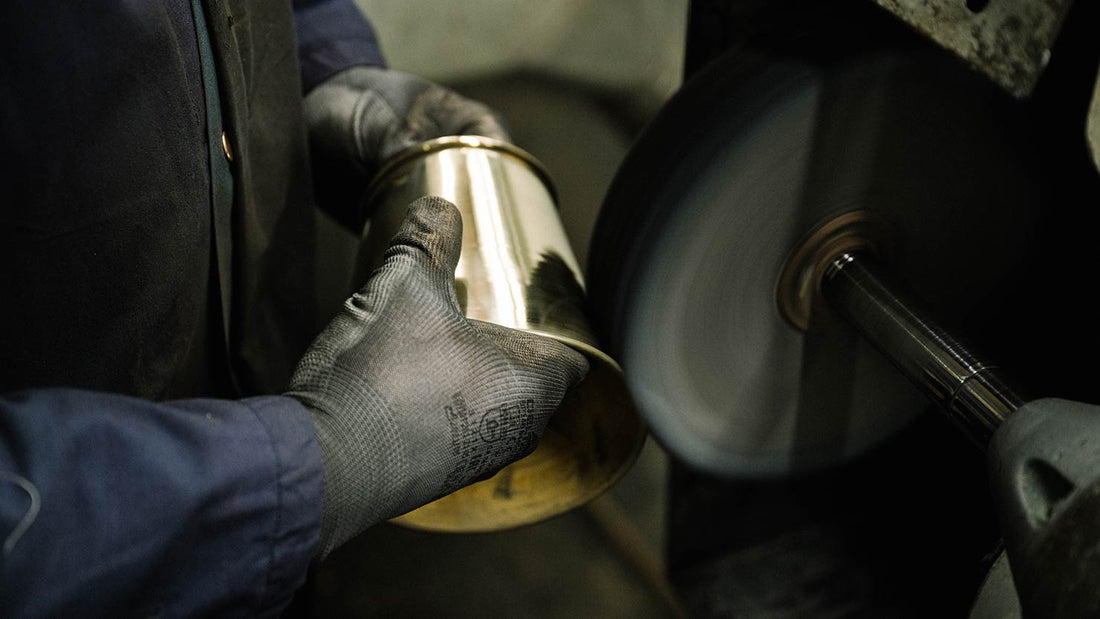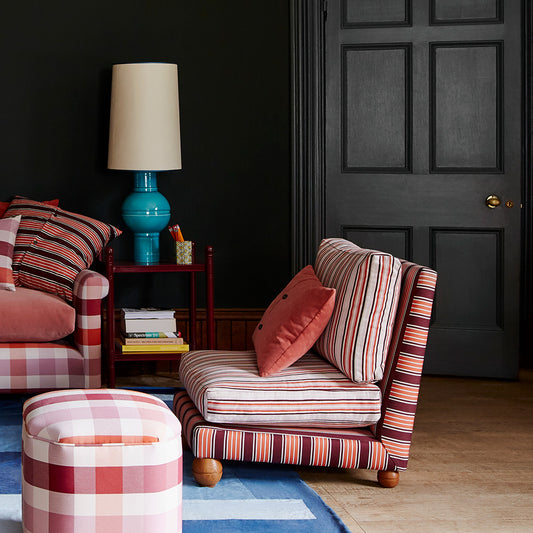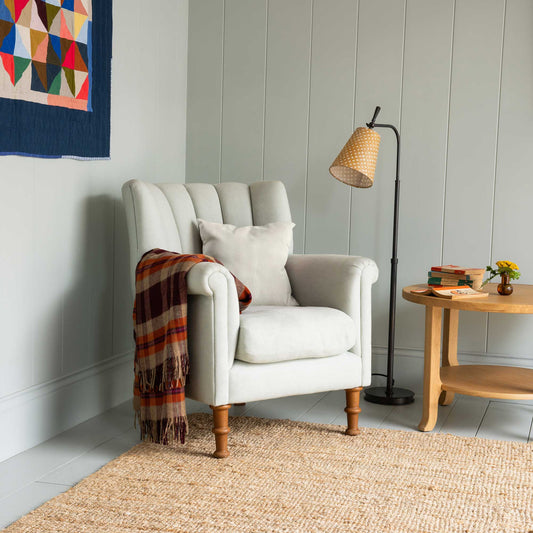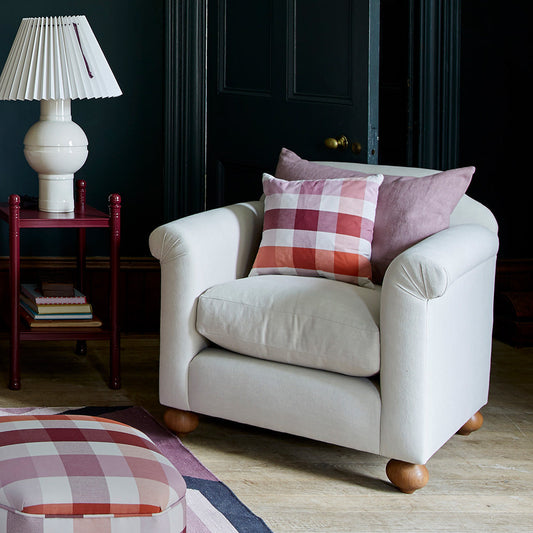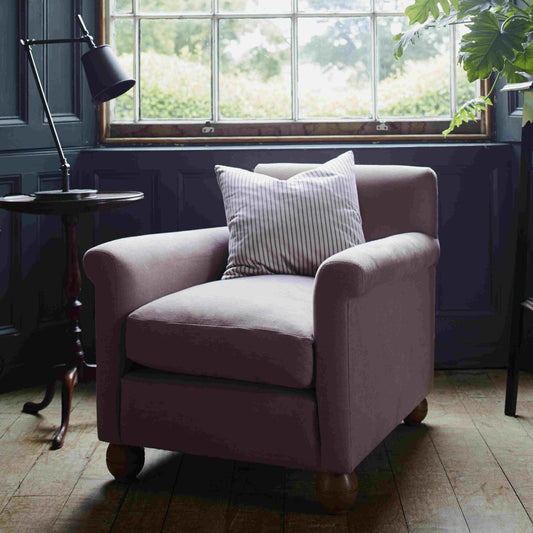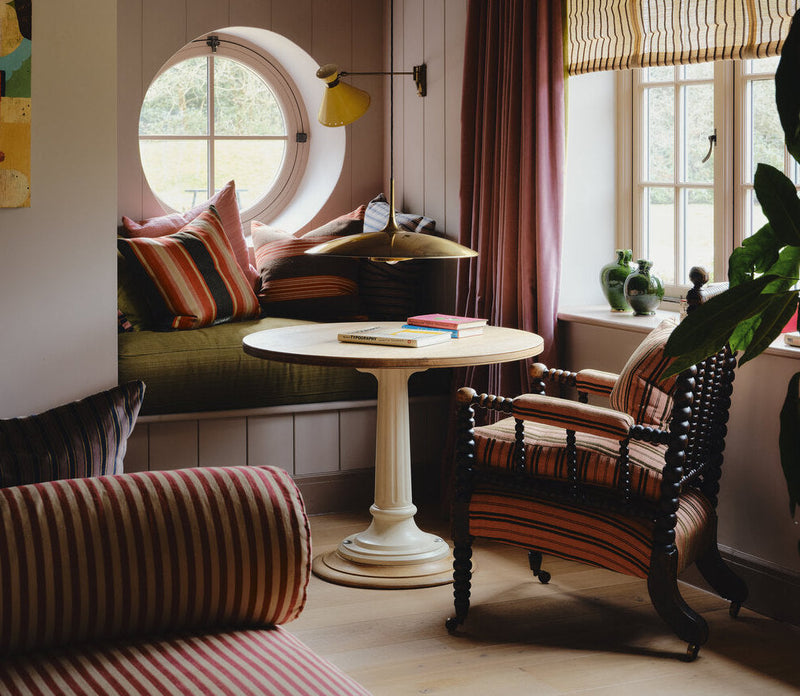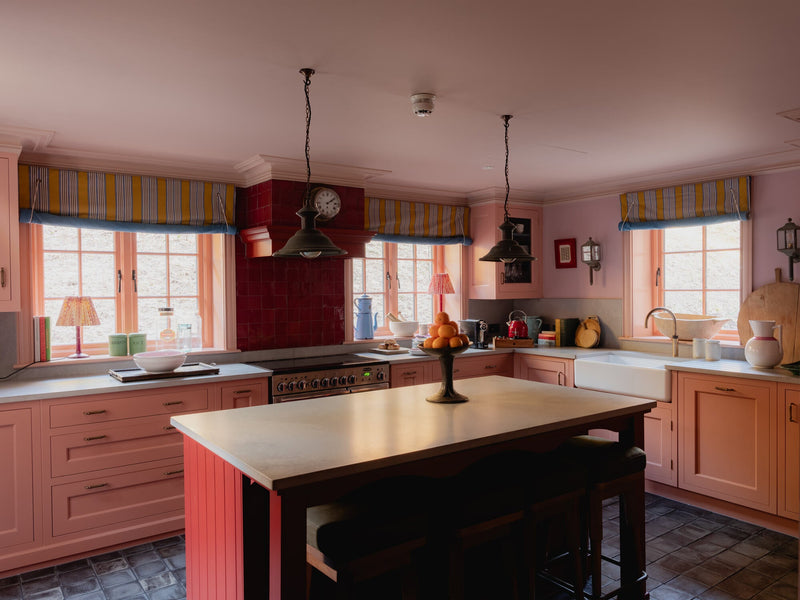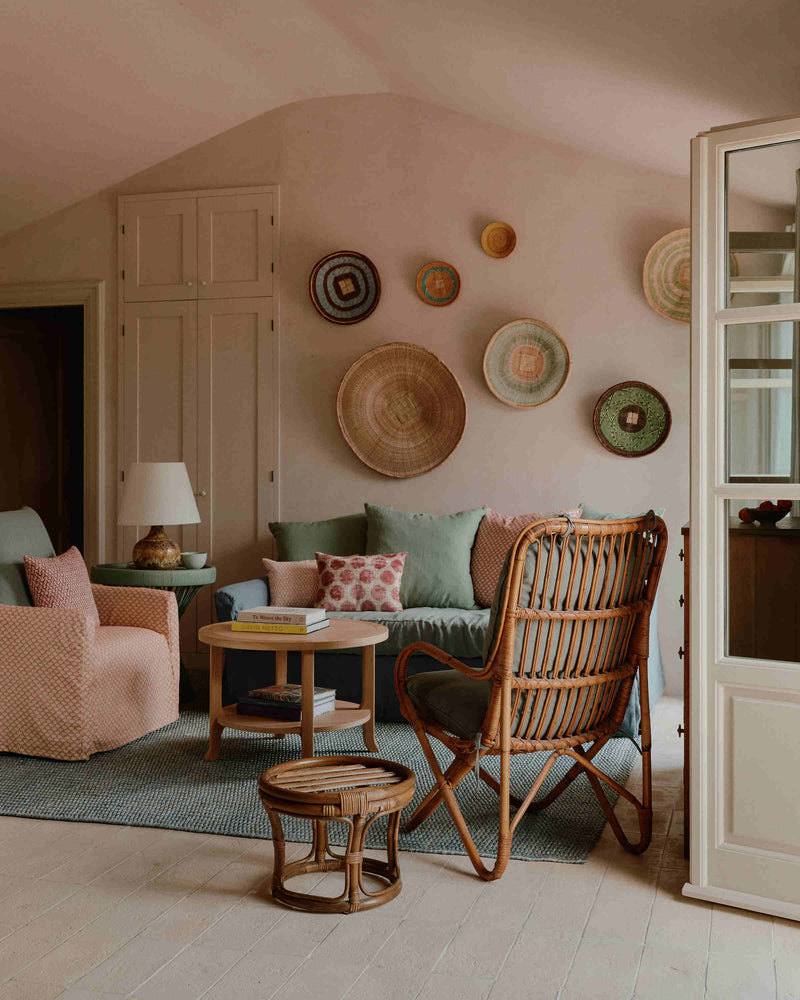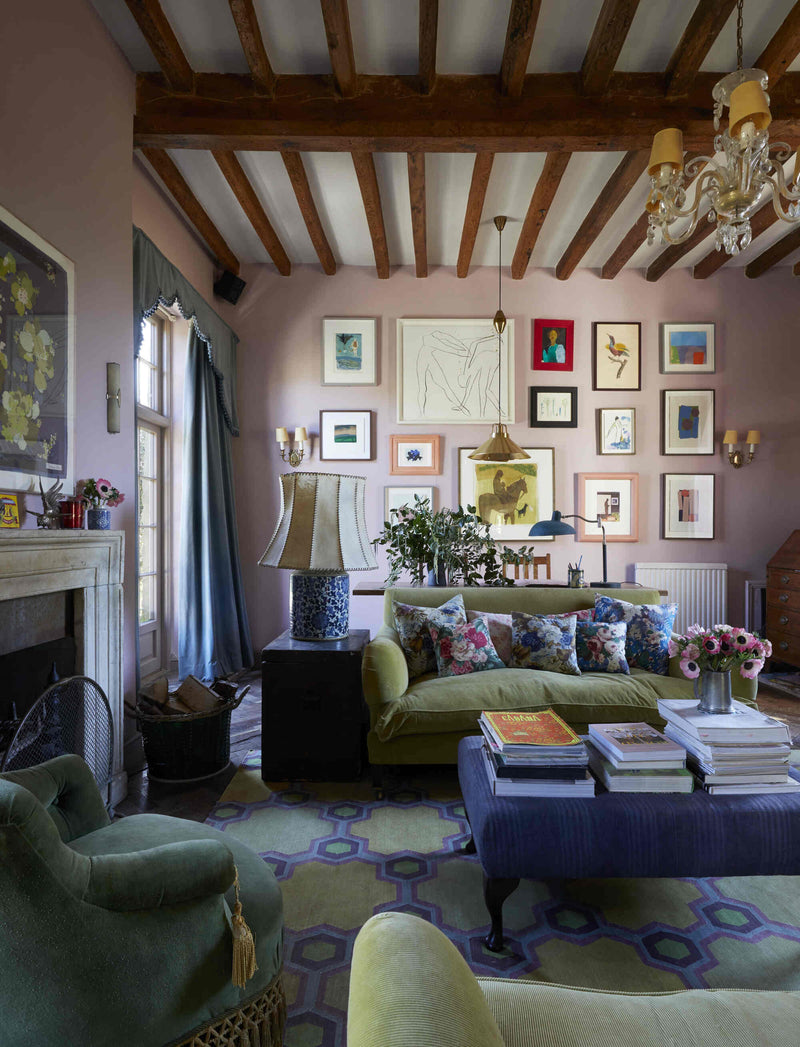Behind every NiX piece is the story of how it was made, and the stories of those who made it. For the NiX metal lighting range, we sought the expertise of a family-run company in Portugal.
The low-roofed workshop painted white and blue has stood in the same spot since it opened in 1941, where a small team of skilled metal workers still make lamps using traditional methods.
Marinha Grande, between Lisbon and Porto on the Atlantic coast, has been the centre of glass-making in Portugal for 250 years. Surrounded by pine forests that provided charcoal for the furnaces and with an endless supply of sand from the sea and nearby riverbeds, the area became renowned for glass production after the English entrepreneur William Stephens opened the famous Stephens Brothers glass factory in the 18th-century.
The area also became home to numerous workshops that sprang up to support the glass industry. The company’s founder trained at the Stephens Brothers factory school and specialised in glass, but by the 1950s the demand for chandeliers and wall lights meant the company began to attract skilled metal workers from the north of Portugal.
Today only a few of the traditional workshops remain, which makes the products in this NiX range rather special pieces, made in a way that is the antithesis to a large-scale production line. Their craftsmanship is so valued that their lights can be found in the world’s smartest hotels, on the sets of the Harry Potter films and even in the White House.
Each craftsman specialises in making a particular part of the brass lights. José, who has worked here for nine years, is a metal spinner, a highly-skilled job that involves shaping the shades and bases of the lamps.

A mould from the company’s archive is placed on a metal lathe and as the lathe spins, the brass is gradually pulled over the mould to form the shape. Metal spinning is not only hard work physically; it requires real precision to spin the fine disks of brass into the required shape and uniform thickness.
Once all the parts of the light have been shaped and formed, the solid brass has a coloured finish applied. For the NiX range, the unique bronze tint selected by Nicola is applied by hand. This is done by only one worker to try and ensure consistency in the colour, but even so, it’s a delicate process where the temperature of the furnace that dries the tint, the climate and the humidity all affect the final hue. In fact, the slight variation is what makes each NiX lamp unique.
At the end of the process, each brass light is waxed by hand, another technique that has its roots in tradition. Beeswax is used to give a shine to the brass and to protect it from discolouring, a process that was used long before chemical varnishes were introduced.
Finally, the finished parts are fitted together by Sandra, who has worked at the company for over 20 years. As head of product testing, it is down to her whether the final product is considered fit for shipping. After every piece is inspected and every electrical connection tested, it is wrapped and packaged, ready to make its way to its new home.
The company strives to make the production process as sustainable as possible, so the packaging used to protect the lights is recycled. All the wastewater used during production, which often contains traces of metal and cleaning agents, is stored carefully on site until it is collected to avoid it reaching the local water system.
Discover the Focused Lighting collection exclusively at NiX by Nicola Harding. Co.
